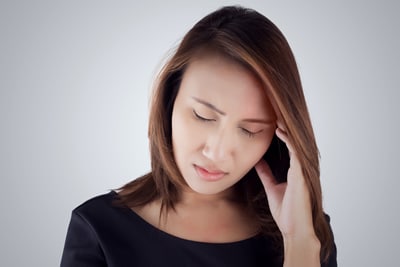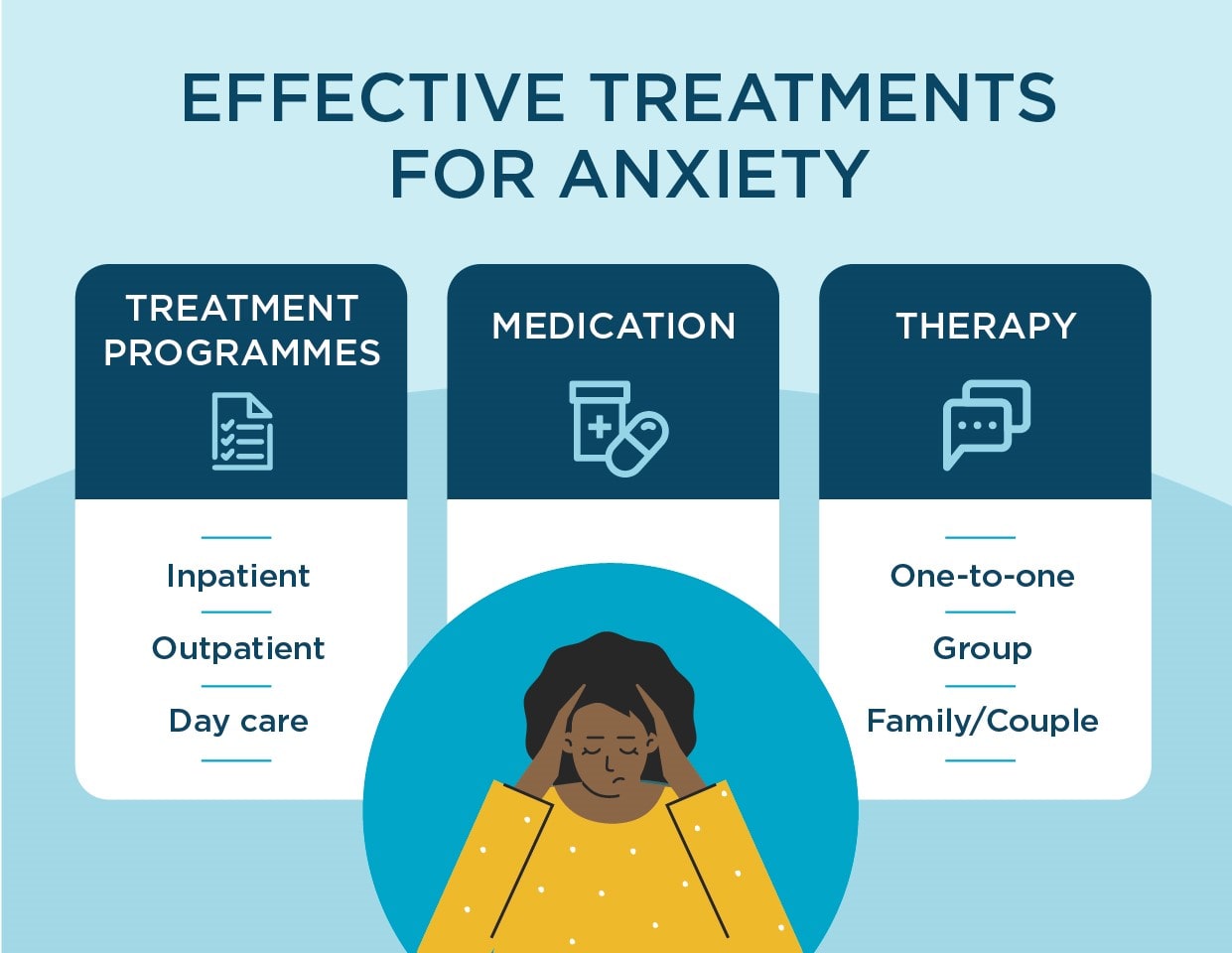Start your path with counselling for anxiety disorder supported by professionals
Start your path with counselling for anxiety disorder supported by professionals
Blog Article
Checking Out Different Techniques in Coaching for Anxiousness Problem for Lasting Modification
When dealing with anxiousness disorders, it's important to discover a variety of therapy techniques. Each method offers special insights and tools to assist you manage your signs and symptoms effectively. You might locate that combining techniques can yield the most effective outcomes. Nevertheless, understanding the nuances of these methods is essential to fostering long lasting adjustment. What if the best combination could launch a new level of psychological wellness for you?
Recognizing Anxiety Problems: A Quick Introduction
Anxiety conditions, which influence numerous individuals worldwide, can greatly affect life. You might experience frustrating sensations of worry or fret that appear irrepressible. These sensations can cause physical signs and symptoms like a racing heart, sweating, and even dizziness. Usual kinds of stress and anxiety conditions consist of generalized stress and anxiety condition, panic attack, and social anxiousness condition. Each has special indications, however they all share a tendency to disrupt your routine and relationships.Understanding the source of your anxiousness is crucial. It may stem from genes, brain chemistry, or life experiences. Acknowledging your triggers can assist you manage your actions better. It is very important to bear in mind that you're not the only one in this struggle. Many individuals deal with similar obstacles, and seeking assistance is a solid action toward feeling much better. By learning more about anxiousness disorders, you're already on the course to understanding and handling your condition much more effectively.
Cognitive-Behavioral Therapy: Testing Negative Idea Patterns
In Cognitive-Behavioral Treatment, you'll start by determining the unfavorable idea triggers that add to your anxiousness. You'll work on changing them with more favorable options as soon as you identify these thoughts. With each other, you'll construct effective coping methods to help handle your stress and anxiety in day-to-day situations.
Identifying Negative Thought Triggers

Identifying the specific triggers behind your negative thoughts can be vital in taking care of anxiety when you come across moments of distress. Begin by focusing on circumstances that prompt feelings of worry or fear. Is it a crowded room, an approaching due date, or a discussion with certain people? Take down these circumstances in a journal. This will certainly aid you determine patterns in your thinking. Additionally, notice physical sensations that accompany your adverse ideas, like a racing heart or rigidity in your breast. By determining these triggers, you acquire insight right into what's fueling your anxiety. Understanding these connections is the primary step in challenging those thoughts and eventually reclaiming control over your psychological responses.
Changing Ideas With Positives
Challenging negative thought patterns is a crucial action in transforming your state of mind and reducing anxiety. You might typically find on your own trapped in cycles of insecurity or devastating reasoning. Rather than letting these ideas determine your feelings, technique replacing them with favorable affirmations or sensible alternatives. For instance, when you think, "I can not handle this," shift it to, "I can handle challenges one step each time." This basic change can substantially influence your emotional state. On a regular basis recognizing and countering these negative thoughts aids develop a healthier internal dialogue. Remember, it takes time and effort, however continually exercising this strategy can bring about lasting adjustment, equipping you to face anxiousness with renewed confidence and durability.
Structure Coping Approaches Together
Changing adverse ideas is just the beginning of taking care of anxiety effectively. To produce lasting adjustment, you require to develop coping methods that equip you. Cognitive-Behavioral Therapy (CBT) aids you recognize and test those unhelpful thought patterns. With each other, you and your therapist can explore how these thoughts influence your feelings and behaviors.Start by establishing useful methods, like journaling or mindfulness workouts, that enable you to challenge anxiousness head-on. When you encounter your worries gradually, you'll find out to react in different ways.

Mindfulness and Acceptance-Based Approaches: Cultivating Present-Moment Recognition
As you navigate the complexities of anxiousness, including mindfulness and acceptance-based techniques can significantly boost your ability to grow present-moment recognition. By concentrating on the here and currently, you'll locate that you can observe your ideas and feelings without judgment (Counseling services for anxiety). This practice assists you recognize your stress and anxiety without feeling bewildered by it.Engaging in mindfulness exercises, such as deep breathing, body scans, or directed reflections, permits you to ground on your own in your present experience. Acceptance-based strategies motivate you to accept your feelings rather than combat versus them. When you approve your sensations, they shed their power over you.Incorporating these methods right into your day-to-day routine can transform exactly how you react to anxiousness. You'll create strength and learn to navigate difficult scenarios with better ease. Eventually, growing present-moment awareness lays the foundation for long lasting change, equipping you to lead an extra meeting life
Direct Exposure Treatment: Challenging Worries Slowly
Exposure therapy aids you challenge your fears in a gradual method, making it less frustrating. You'll learn strategies to deal with anxiety-provoking circumstances detailed, while additionally constructing coping strategies to manage your reactions. This approach encourages you to take control and lower stress and anxiety with time.
Steady Exposure Methods

When facing stress and anxiety, progressively facing your anxieties can be a powerful way to reclaim control. This technique, referred to as gradual direct exposure, involves slowly revealing on your own to the situations or objects that cause your stress and anxiety. Start with much less intimidating situations and gradually function your way approximately more difficult ones. If you're worried of public speaking, you may start by speaking in front of a mirror, then proceed to sharing ideas with a pal, and at some point attend to a tiny group. Each step assists desensitize you to the anxiety, building your confidence with time. Remember, it's vital to pace yourself and celebrate tiny triumphes as you move with this procedure, enhancing your ability to handle anxiety effectively.
Structure Coping Methods
Structure effective coping strategies is crucial for managing anxiety, particularly as you challenge your fears gradually - Counseling services for anxiety. One effective approach is exposure treatment, where you begin by encountering your fears in a controlled fashion. Begin with much less daunting circumstances and slowly function your means up to even more challenging scenarios. This gradual exposure helps desensitize you to stress and anxiety sets off, making them much less overwhelming.Incorporate relaxation strategies, such as deep breathing or mindfulness, to soothe your mind throughout direct exposure. Track your progression, celebrating little success in the process to enhance your self-confidence. Bear in mind, it's fine to take your time; the goal isn't perfection but constant renovation. By counselling for anxiety disorder developing these methods, you'll encourage on your own to navigate anxiety and welcome life a lot more completely
Psychodynamic Therapy: Discovering Origin of Anxiety
Psychodynamic treatment checks out the unconscious mind, revealing the source of your stress and anxiety. By examining your ideas, feelings, and previous experiences, this method helps you reveal underlying disputes and unresolved concerns that may add to your present anxiety. You'll function with a therapist to explore childhood experiences, partnerships, and emotional patterns that shape your feedbacks today.As you get understanding into these much deeper layers of your subconscious, you'll begin to recognize how previous events affect your present habits. This understanding can lead to catharsis, allowing you to process feelings you may have suppressed.Through the restorative partnership, you can likewise recognize defense systems that might have developed with time, providing a more clear path to alter. Ultimately, psychodynamic therapy outfits you with the tools to address your anxiousness at its core, promoting long-term improvement in your emotional wellness.
Holistic and integrative Strategies: Integrating Techniques for Greater Efficacy
Integrating various therapeutic methods can boost your journey toward handling stress and anxiety better. By integrating aspects from cognitive-behavioral treatment, mindfulness techniques, and holistic methods, you can produce a customized approach that resolves your unique needs. You could make use of cognitive-behavioral strategies to test adverse idea patterns while including mindfulness workouts to ground yourself in the present moment.Additionally, exploring holistic practices such as yoga or reflection can advertise leisure and minimize stress and anxiety signs. This blend permits you to establish better self-awareness and resilience.Experimenting with these diverse methods can aid you find what reverberates most with you. Keep in mind, it's about finding a harmony that functions, instead of sticking to a single method. This integrative approach not only offers instant relief yet also cultivates long-term skills for managing anxiousness, encouraging you to reclaim control over your life.
The Duty of Support Equipments: Building Durability Through Connection
While it may seem that handling anxiousness is a solitary trip, having a solid assistance system can play a vital role in your strength. Surrounding on your own with compassionate pals, household, or support system creates a secure room where you can freely share your experiences and feelings. When you get in touch with others, you remind yourself that you're not the only one in this struggle.These relationships supply inspiration and can offer useful coping strategies that have helped others. It's also a possibility to obtain perspective; close friends can aid you see situations in a different way, reducing feelings of isolation.Moreover, psychological assistance fosters a sense of belonging, which can considerably alleviate stress and anxiety signs and symptoms. By leaning on your support group, you can build strength and tackle difficulties a lot more effectively. Remember, reaching out for assistance suggests toughness, and it can make all the difference in your journey toward handling stress and anxiety.
Regularly Asked Inquiries
What Are the Common Symptoms of Stress And Anxiety Conditions?
You could experience uneasyness, exhaustion, difficulty concentrating, irritation, muscle mass stress, and rest disruptions. Physical signs and symptoms can consist of quick heart beat, sweating, and shivering. Recognizing these signs early can help you seek appropriate support and treatment.
For How Long Does Therapy Usually Last for Stress And Anxiety Conditions?
Therapy for anxiety disorders generally lasts anywhere from a few weeks to a number of months. It really depends upon your individual needs, development, and the methods your therapist uses to help you handle your anxiousness properly.
Can Drug Be Used Alongside Treatment for Stress and anxiety?
Yes, medicine can certainly be used along with treatment for stress and anxiety. Combining both approaches often boosts therapy efficiency, helping you take care of signs and symptoms while checking out underlying issues through therapy (Counseling services for anxiety). Constantly consult your health care copyright for tailored recommendations
Are There Self-Help Strategies for Managing Stress And Anxiety?
Yes, there are several self-help strategies for handling anxiety. You can exercise mindfulness, engage in regular workout, preserve a well balanced diet regimen, establish a regular, and utilize deep breathing strategies to help lower stress and anxiety signs and symptoms efficiently.
Just how Do I Know if I Need Specialist Help for Stress And Anxiety?

Report this page